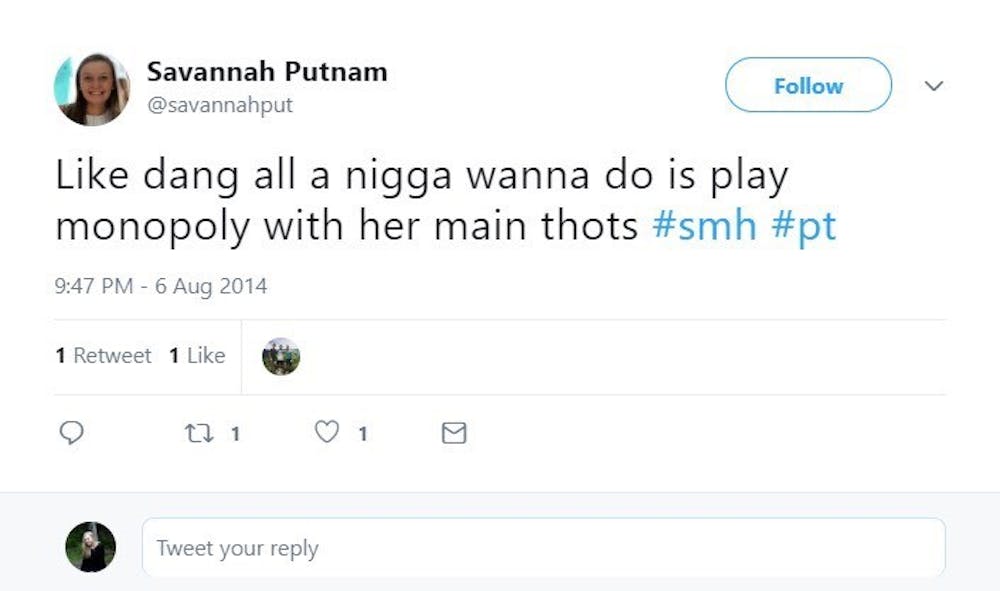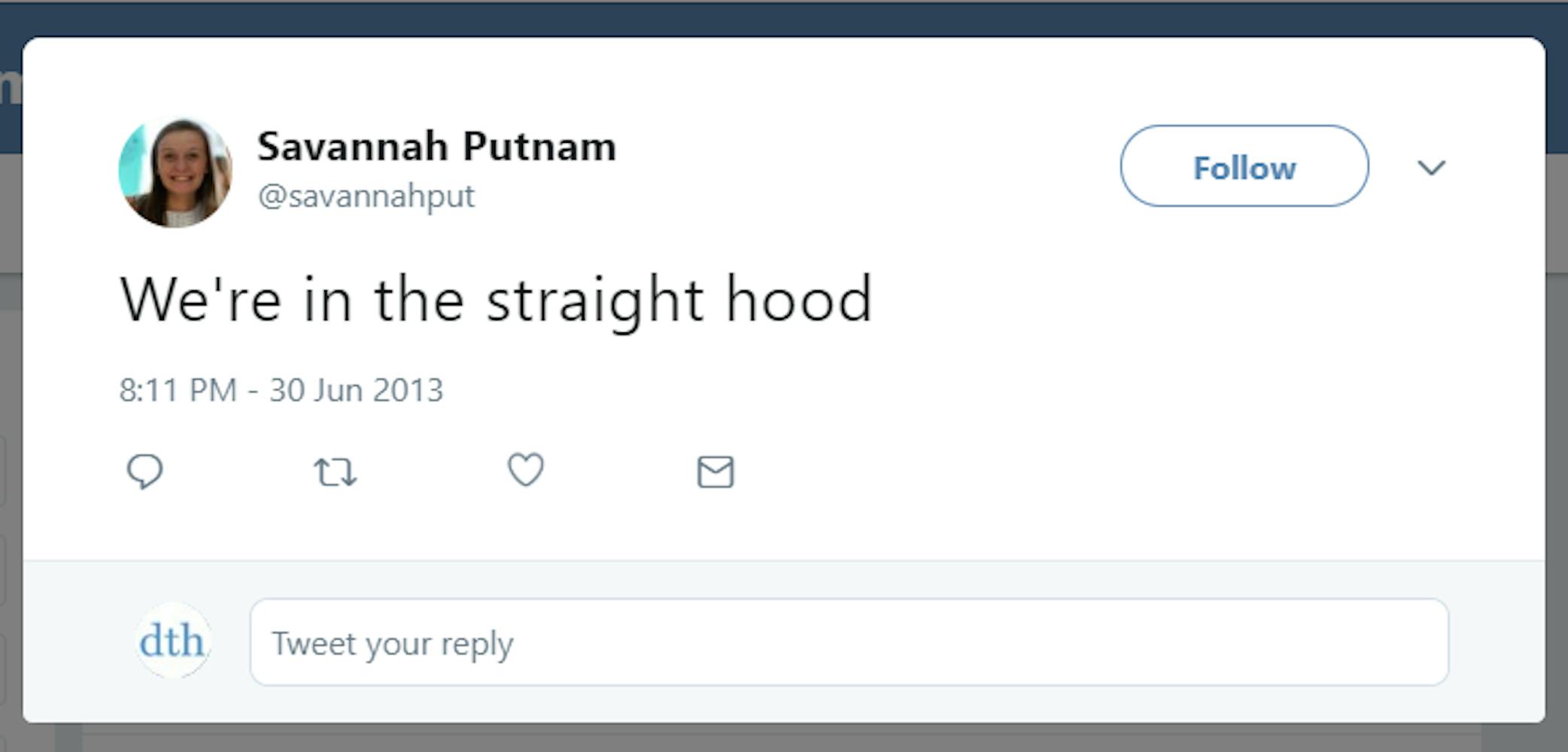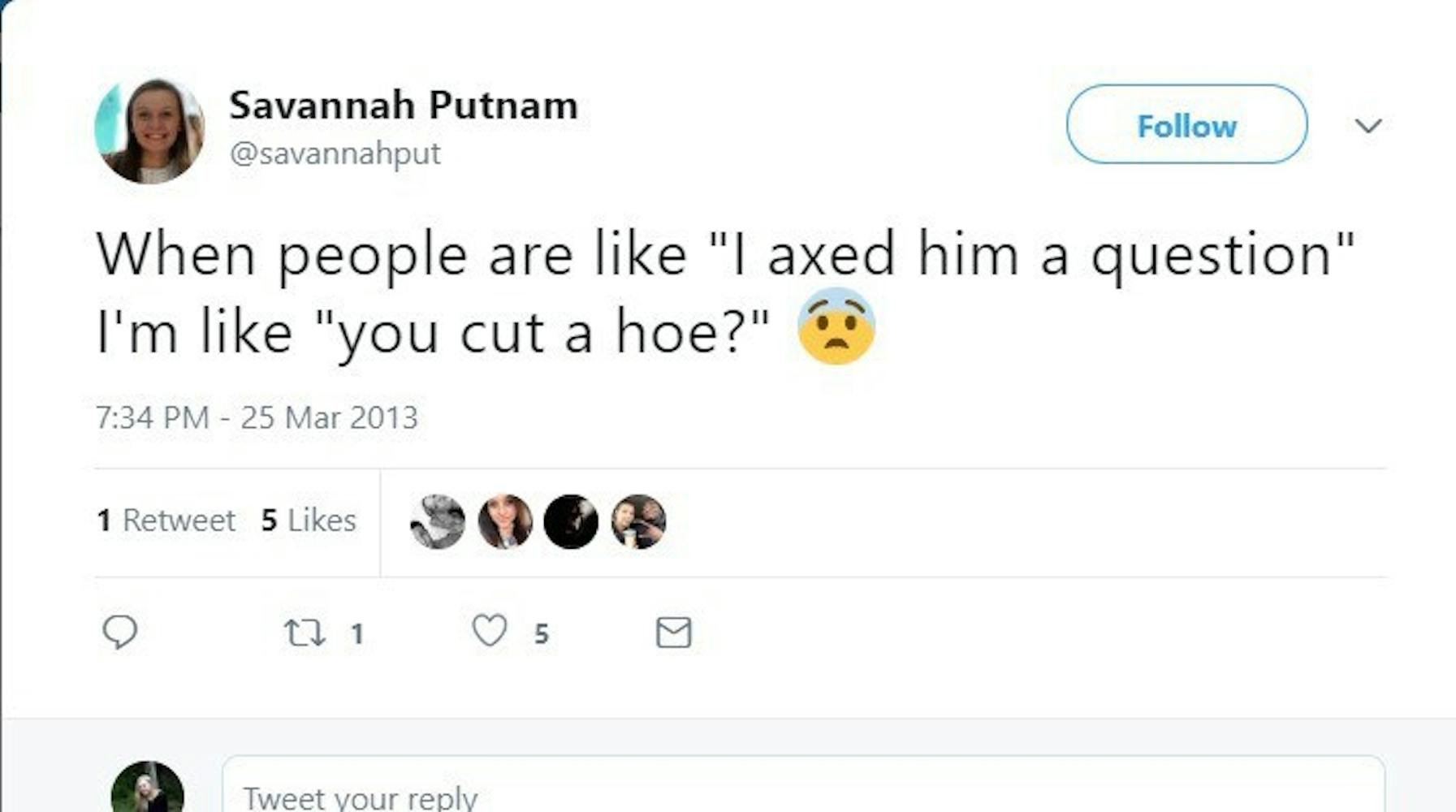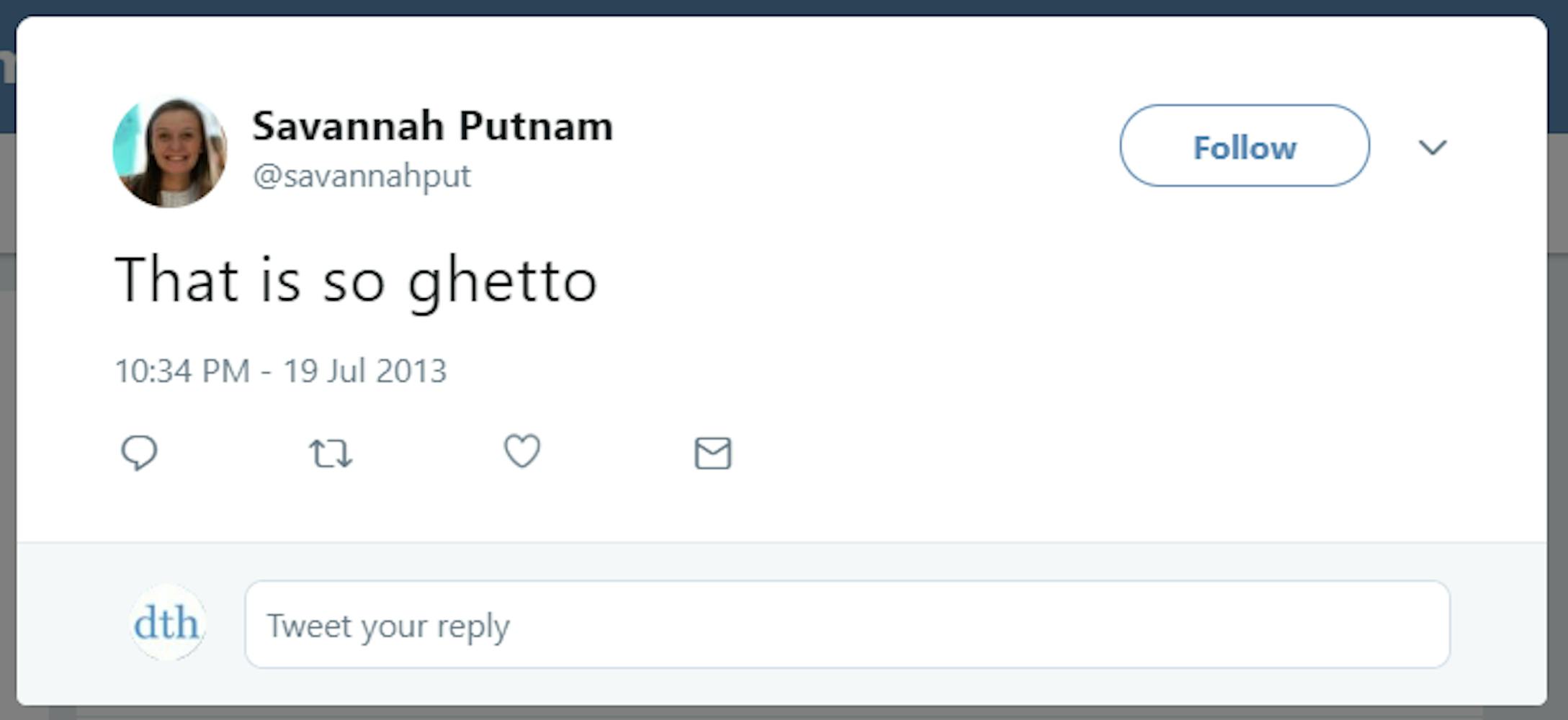The intersection of race, language and social media has become a prominent issue in the national dialogue as the things said online begin to have real-world ramifications. The surfacing of these tweets comes just months after an Instagram Live video of a UNC field hockey commit using racial slurs went viral, leading many to call on the University to revoke her scholarship.
Missouri State University’s student newspaper, The Standard, also reported in March that the MSU Student Government chief information officer had used the n-word in 232 tweets from 2013 to 2015. In total, the student had used derogatory language 350 times on his Twitter during that time, according to The Standard.
In light of these incidents, The Daily Tar Heel surveyed the social media of many prominent students on campus, which included the leadership of Student Government, the Campus Y, the Carolina Union Activities Board, the Carolina Athletics Association, the Black Student Movement, as well as The Daily Tar Heel itself.
Putnam’s Twitter was the only social media account on which the DTH has found disparaging language and racial slurs thus far.
“It’s about this kind of thing happening all the time”
Elizabeth Pryor, an associate professor of history at Smith College, said these incidents are hardly rare. Pryor has taught, researched and written extensively on the history and societal impact of the n-word.
“It’s not about her, it’s not about the incoming Student Body President, it’s about this kind of thing happening all the time,” she said. “And most of the time, I see a lot of reluctance to apologize and a lot of making excuses, rather than saying, ‘Wow, that’s a part of my history that I’d like to better.’”
Pryor said that she sees denying or downplaying the impact of words used in the past as a lazy way for a person to suggest they are grappling with racism without actually evaluating themself.
“It just shows that they didn’t really care that they caused harm, and they still don’t,” she said.
Black Student Movement Vice President Alex Robinson said that though she believes in giving people room to grow and change as they get older, the age of these tweets does not discount the importance of the issues they present.
“I was really disappointed that she didn’t even apologize, and that she chose to pivot away from the issue and attack the press,” she said. “As a student leader, you have to be accountable to your public … and I think understanding can be extended to a certain level if these are things you said when you were younger, but not to the point of excusing you from apologizing and holding yourself accountable for what you said.”
To get the day's news and headlines in your inbox each morning, sign up for our email newsletters.
But BSM President Qieara Lesesne said that actions in the present matter more to her than apologies for the past. She said that although Putnam’s tweets were disheartening to read, she also thinks it is not up to her, or anyone, to judge Putnam’s character.
“In relation to me, in where I stand with my community and my responsibility to Black students as the president of BSM, I just hope Savannah will continue to hold up her end of the bargain, and continue to put her best foot forward as she said she would do,” Lesesne said.
“Outside of that, it’s up to her personal convictions whether or not she addresses the statements she’s made in the past.”
The implications of language
Pryor said that the conversations surrounding language like this often revert to arguments on political correctness and free speech, yet to her the real question lies in what actually makes these words offensive. She said her students often think of the n-word and other disparaging language as rooting from slavery, but Pryor argues that its significance was really born out of Black freedom.
“Therefore, using that language is suggestive of a sentiment that Black people don’t deserve to be free,” she said. “And to me, the mocking way in which (Putnam) uses it in these tweets promotes an idea that Black people are violent or disorderly.”
Robinson said she thinks young people often know they aren’t supposed to say certain things, but they either never learned or simply chose not to care that their words carry real consequences.
“Growing up in a poor city or in rural areas – places where there’s not as much opportunity – that’s just how people talk,” Robinson said in reference to the March 2013 tweet.
“When people ridicule the way you speak, there are very real consequences when you come to a school like Carolina. I’ve talked to so many students who feel self-conscious and don’t speak up in class because they feel like they’re going to say something wrong.”
Robinson said she thinks that although the element of social media complicates the conversation around race and language, people should still understand the gravity of their words. She said growing up in the tech age may mean that mistakes are more easily unearthed, but it also means educating yourself is easier than ever.
Everyone is responsible for what they say on social media, Robinson said, including both what they say now and what was said when she and Putnam were 16-year-olds.
“On social media, people do feel a need to share everything about themselves, and sometimes that means they end up sharing the unsavory parts of themselves, too,” she said. “Social media just plays a witness to prejudice and racism that still exists in our generation.”
What now?
“Does this mean that everything Savannah has done so far has been in vain? No, I don’t think so,” Lesesne said.
During her campaign, Putnam stressed the need to instate a diversity council at UNC, to implement mental health care reform and to create spaces for the Latinx and LGBTQ communities on campus.
Pryor also said that offensive actions or statements in a person’s past do not take away from the great work they have done, and that addressing these issues offers a chance to foster important conversations and progress.
“These are some deeply problematic ideas that (Putnam) shared here, and that probably many of your classmates still share, and now she has an opportunity to do the heavy lifting and have the tough conversations to make a change,” she said.
This is not a responsibility that falls to only Putnam, Pryor said, adding that anyone who cares about leadership, social justice or equity has the same obligation to take accountability for what they say, and what they have said in the past.
Robinson said she is hopeful that a productive conversation can be had about race, language, the permanence of social media, and how they all interconnect. But she said a call to action like that is much easier said than done.
“As Americans, we don’t want to reconcile with our own past and present racism, because it’s so ingrained,” she said. “It’s so much easier to point out somebody on social media and say, ‘Look, this is something that Savannah Putnam said! They’re the problem! They’re the racist!’ So then, they can just not take a look at themselves.”
Update:
Savannah Putnam released the following statement on her Facebook page at 10:07 p.m. on Thursday:
"When I ran for this office, I promised that I would not only be open with you, I’d be transparent. That is not always an easy thing to do. In fact, right now it is pretty hard.
A few days ago, writers with the Daily Tar heel reached out to me in regards to an article that they were researching. In the article, they planned to discuss the importance of inclusive language and the dangers of insensitivity. This led them to look through tweets from my past.
To be honest, what they found was offensive and unacceptable. And, regardless of who I have matured to become today I understand that I am responsible for all of my actions, even the ones that I now regret.
That being said, I would like to offer my sincerest apology, I know that what I said was wrong, there is no excuse for it. All that I can say is that since that time I have done a lot of learning, growing, and, most of all, maturing and I hope you’ll support us as we embrace our vulnerability and continue to be open with you all even when it’s not easy..."
University editor David Saff contributed reporting for this article.
@maddyarrowood
managing.editor@dailytarheel.com







